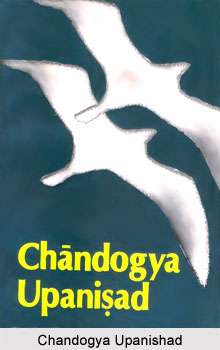 Chandogya Upanishad is as old as Brhadaranyaka Upanishad and together they rank among the oldest Upanishads. Chandogya Upanishad was written on the Vedic Brahmana period about ninth to eighth century BC. Chandogya Upanishad is associated with Samveda. It is ranked ninth in the Muktika canon of hundred and eight Upanishadas.
Chandogya Upanishad is as old as Brhadaranyaka Upanishad and together they rank among the oldest Upanishads. Chandogya Upanishad was written on the Vedic Brahmana period about ninth to eighth century BC. Chandogya Upanishad is associated with Samveda. It is ranked ninth in the Muktika canon of hundred and eight Upanishadas.
Chandogya Upanishad is the part of Chandogya Brahaman that contains ten chapters. The first two chapters of Chandogya Brahmana deal with the rituals of sacrifice and worship. The rest eight chapters constitute Chandogya Upanishad. Chandogya Upanishad is the ancient and authentic source of principal fundamentals of Vedanta philosophy. In Brahma Sutras a number of references are made to this Chandogya Upanishad, which indicates its special significance in Vedantic philosophy. The speciality of Chandogya Upanishad is important Upasanas of Meditation like Dahara Vidya, Shandilya Vidya etc.
The Chandogya Upanishad depicts the importance and greatness of universal holy syllable `OM` and the significance of vital life force or `Prana`. It also narrates a story to explain the holiness of Prana narrating how the evil forces could not touch it while the other five senses got defiled by the evil.












